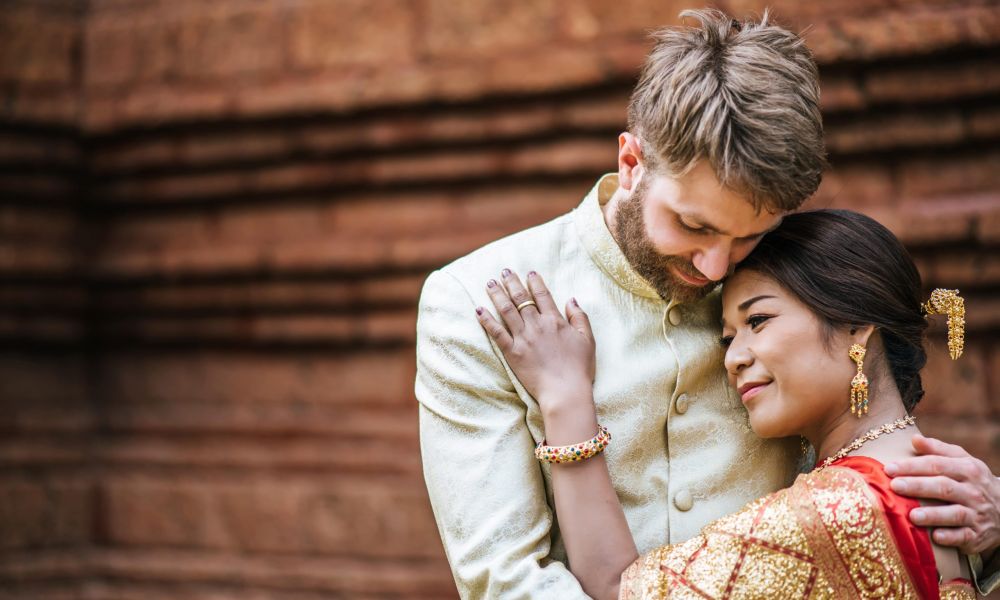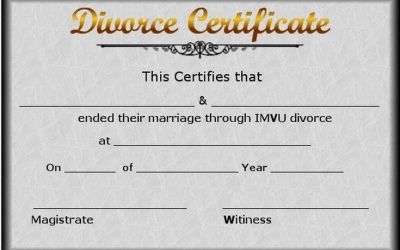
Interfaith Marriage in Dubai: Legal Requirements & Cultural Challenges in 2025
Table of Contents ▼
Dubai, with a population of over 200 nationalities, has adapted its legal system to meet the needs of its diverse residents.
A pivotal shift occurred in 2022 when Federal Decree Law No. 41 introduced civil marriage for non-Muslims.
In this article, we’ll guide you through the essentials of civil and interfaith marriage in Dubai.
Civil Marriage Framework in Dubai

Federal Decree Law No. 41 of 2022
Federal Decree Law No. 41, introduced in 2022, allows non-Muslim expatriates and tourists to marry under civil law in Dubai, a departure from the traditional reliance on Sharia law.
The process is straightforward and legally binding, conducted by Dubai Courts, and is available to both residents and visitors. This change facilitates a more inclusive marriage system in the UAE.
Sharia Law vs. Civil Marriage
There are key differences between Sharia law marriages and civil marriages in Dubai. Under Sharia law, Muslim men can marry Christian or Jewish women but cannot marry atheists or polytheists unless those individuals convert to Islam.
Muslim women, however, are not allowed to marry non-Muslim men unless the man converts to Islam. Civil marriage, however, allows non-Muslim couples to marry freely without religious restrictions.
Requirements for Civil Interfaith Marriage in Dubai

To be eligible for a civil interfaith marriage in Dubai, both individuals must meet specific criteria. Both partners must be non-Muslim, as Muslims are bound by Sharia law when it comes to marriage.
At least one partner should be a resident of the UAE, and both must be 21 years of age or older. The couple must also not be closely related or already married.
For residents, required documents include valid passports, Emirates IDs, proof of marital status (single, divorced, or widowed), and a copy of the residential visa. Tourists will need passport copies, an entry visa (if applicable), and a certificate of no impediment from their home country.
Step-by-Step Civil Marriage Process
- Submit Application: Couples can apply online, with the standard application fee typically around AED 2,500, though it may vary based on additional services.
- Attend Marriage Ceremony: The ceremony is officiated by a notary public, so no religious officiant is needed. Witnesses are optional, and the notary public will serve as the legal witness. The ceremony is available in both English and Arabic.
- Receive Marriage Certificate: After the ceremony, the marriage certificate is immediately issued, and it can be attested for international use if necessary.
Many couples choose a hybrid ceremony, where they complete the legal marriage and then hold a cultural or religious celebration afterward.
Interfaith Marriage: Navigating the Legalities for Muslims and Non-Muslims

Dubai’s recent civil marriage laws offer new opportunities for non-Muslim couples, though Muslim residents face some specific restrictions. Under Sharia law, Muslim men are allowed to marry Christian or Jewish women, but they cannot marry atheists or polytheists unless they convert to Islam. Muslim women cannot marry non-Muslim men unless the man converts to Islam.
Some couples marry abroad and later seek to have their interfaith marriage recognized in the UAE. This process can be tricky and often requires legal assistance.
Recognizing Foreign Marriages
When couples marry abroad, their marriage will usually be recognized in Dubai as long as it was legally performed in the home country. However, attestation from the UAE Embassy and the Ministry of Foreign Affairs (MOFA) is required. Marriages that contradict UAE laws, like same-sex unions, will not be accepted. Proper attestation and documentation are vital for recognition.
Cultural and Legal Challenges
Interfaith couples often face social and familial challenges, particularly within conservative communities. If one partner is Muslim, legal issues related to child custody, inheritance, and other matters governed by Sharia law may arise.
Dubai’s legal system, however, supports interfaith marriage by providing neutral platforms for resolving disputes within these marriages.
Conclusion
Though the civil marriage process is now more accessible, attention to detail is still required. Ensure you meet all requirements, allow enough time for paperwork processing, and seek advice if necessary.
Professional guidance from UAE family law specialists, such as Easy Wedding, can offer essential support to navigate the complexities of interfaith marriage in Dubai.

